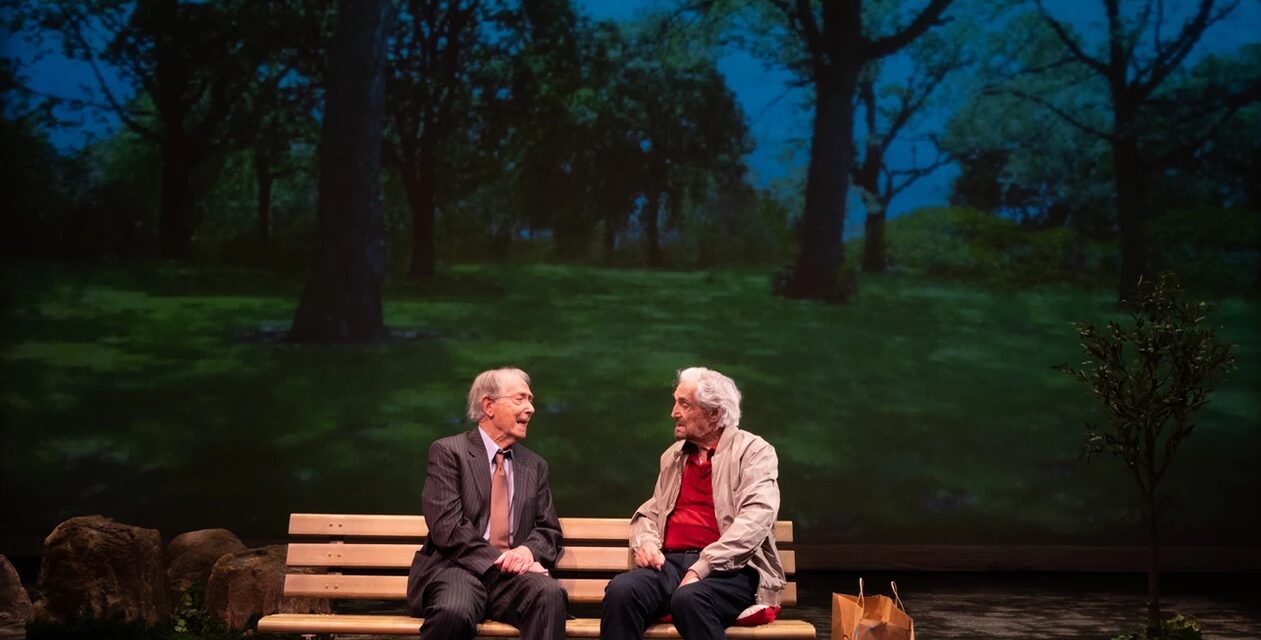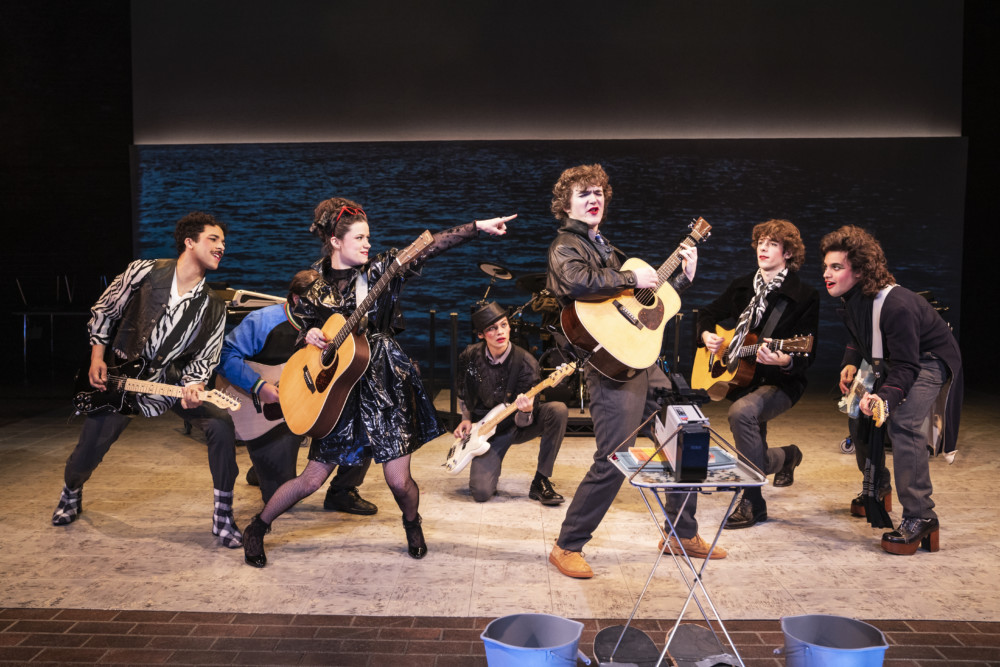By Samuel L. Leiter . . .
Have you heard the one about the two old Jews sitting around kvetching about life, death, and the hereafter? The one where one of them, sitting in the desert during biblical times, thinks he sees an oasis, and, when the other doesn’t believe him, says, “I know a mirage when I see one”? Ba-da-boom. Well, there’s plenty more (oy vey) where that came from in the latest attempt to wring clichéd humor from stereotypical Jewish characters in Ed. Weinberger’s new play called—nu, what else?—Two Jews, Talking. At least you’ll have the nachas of seeing two first-class alte kackers—Hal Linden and Bernie Kopell—delivering the zingers with the shmear of Borscht Belt flavor they require. Just imagine that St. Clement’s Theatre, located in an Episcopal church, is Grossinger’s in the 1950s.
Two Jews, Talking, which could almost be called Old Jews Telling Jokes if that title hadn’t already been taken (and by a much funnier show), isn’t about just any two Jews. The title doesn’t mention age or gender, but don’t go expecting Natalie Portman and Gal Gadot. A show called Two Jews, Talking is clearly going to show us a pair of antediluvian elders. No, not Ruth Westheimer and Fran Leibowitz. Not even Bernie Sanders and Chuck Schumer. Nor me and my friend, Larry. Rather, the kind you’re probably expecting, the ones who wear their ethnicity on their hidden yarmulkes, like Jackie Mason and Woody Allen, or Mel Brooks and Larry David. Maybe I shouldn’t have mentioned those names, though. It’s better to go with lower expectations.
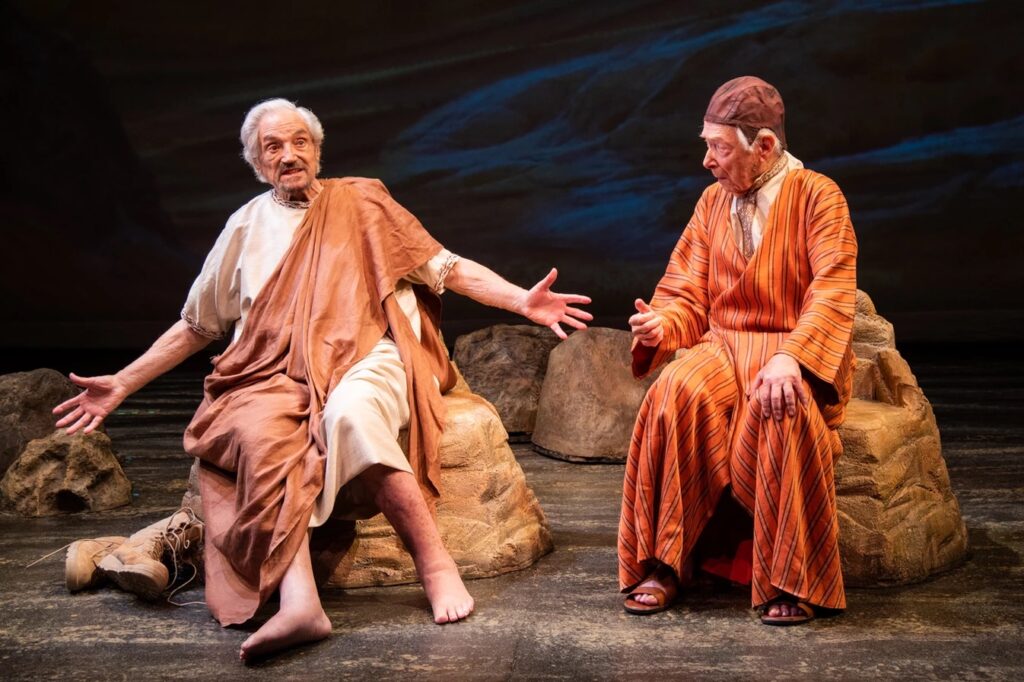
Anyway, the play’s first act, set in the desert in 1505 BCE, shows Bud (Mr. Kopell) and Lou (Mr. Linden)—probably, if oddly, an homage to Bud Abbott (whose mother was Jewish) and non-Jew Lou Costello—dressed by Anthony Paul-Cavaretta in ancient robes, sitting on boulders. These wandering Jews, led by Moses, complain about being lost. Bud, an accountant (it seems even Old Testament Jews couldn’t avoid taxes), plays straight man to the skeptical Lou, a builder. Bud, restrained, is pious; Lou, animated, is agnostic.
The anachronistic jokes, such as they are, include cracks about Jewish staples, like chopped liver. Objections to there being too many religious laws lead inevitably to those against eating shrimp and lobster. (Are you sure you haven’t heard this?) Since the men are super-seniors, the all-too-expected references to physical conditions—like bowel movements—are intact. As the title indicates, all they do is chatter, blocking being almost nonexistent. Director Dan Wackerman did the honors.
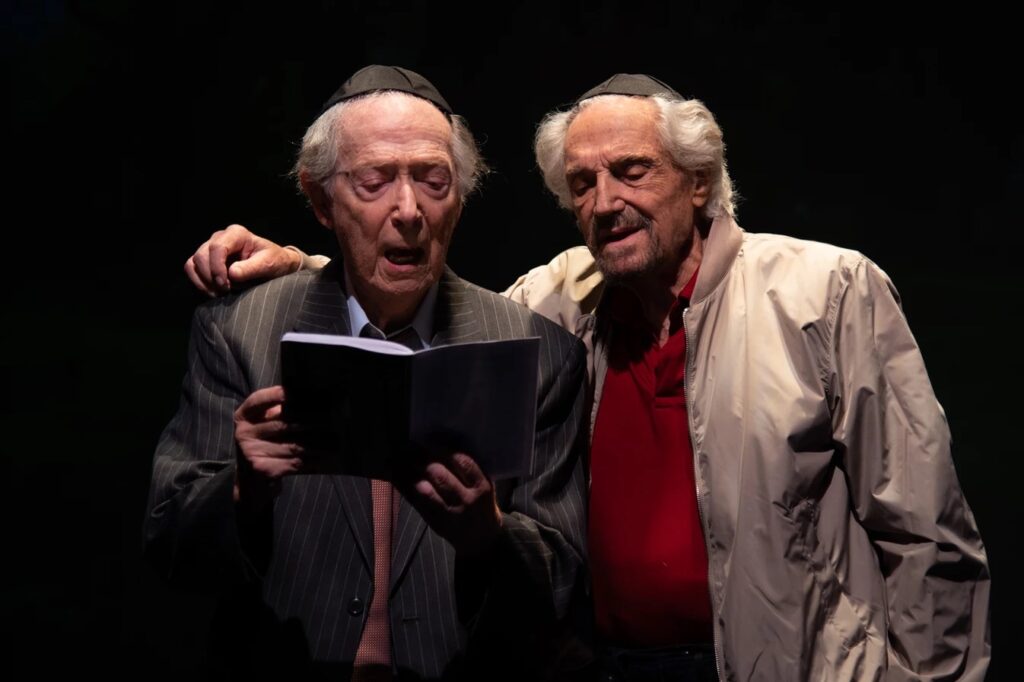

When the act ends, two stagehands enter to change the set as the upstage projection serving as the background keeps morphing into different images, with titles moving us forward in time. Finally, we settle into a park-like setting with a bench replacing the boulders of the first part. The screen says “The Present,” then, after a brief pause, “On Long Island,” which actually gets a laugh. Why? Is Long Island the new New Jersey? Only after the scene begins do we learn that we’re in a cemetery; no gravestones are visible anywhere. Harry Feiner created the minimal scenic, lighting, and projection elements.
Bud and Lou are now Marty and Phil, seemingly modern avatars of their biblical selves, visiting the graves of their loved ones, Marty’s son and Phil’s wife. At first, however, they’re strangers, and the scene depicts their growing bond. Formulaic bodily concerns again intrude, like how often they have to pee (ah! you have heard this!), and there’s lots of other you’ve-heard-it-before comedy about sex.
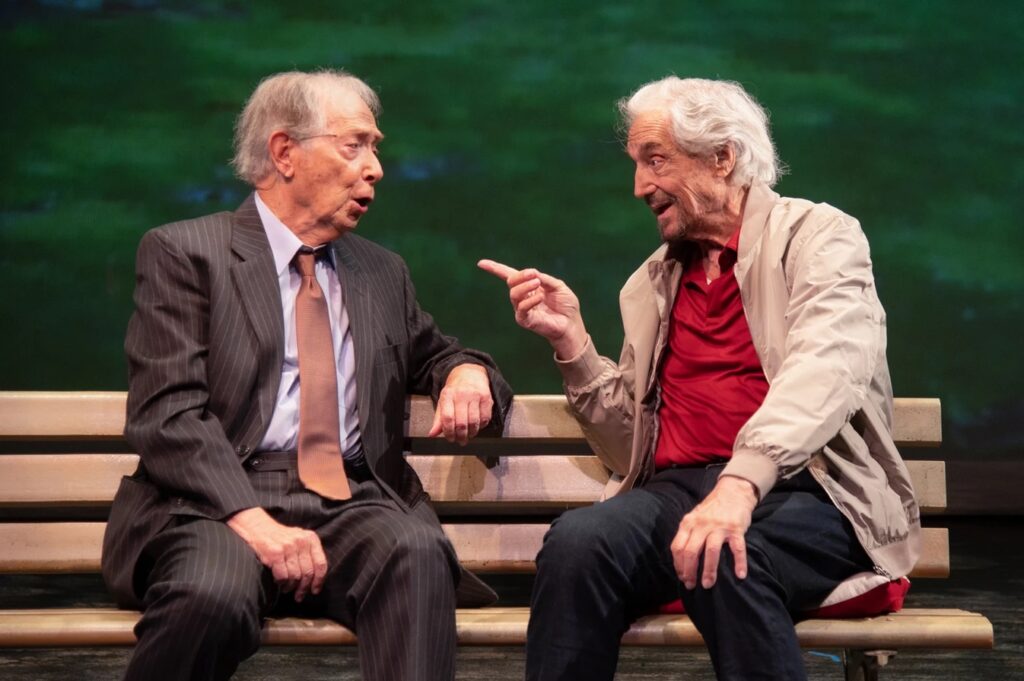

We get more of the same shtick that we saw before, Phil still questioning, Marty still observant. Their conversation includes a long, mildly amusing set piece in which Phil pesters Marty with question after question about what heaven might be like. Told everyone in heaven eats in one big restaurant, he wants to know if there’s a hostess, how long the wait is, what’s on the menu . . . childish stuff scratching for a laugh. Just as in the first act, there’s no plot, just talk edged with Jewish Weltschmerz.
The humor mostly emerges from jokes, and only peripherally from situation or character. Phil tells three jokes, each of them interrupted by his need for assurance that Marty never heard the joke before. Reader, you probably know what happens. The funniest sequence comes when the two old farts concoct original epitaphs for the graves before them: “Sadie Cohen—the good time who was had by all.”
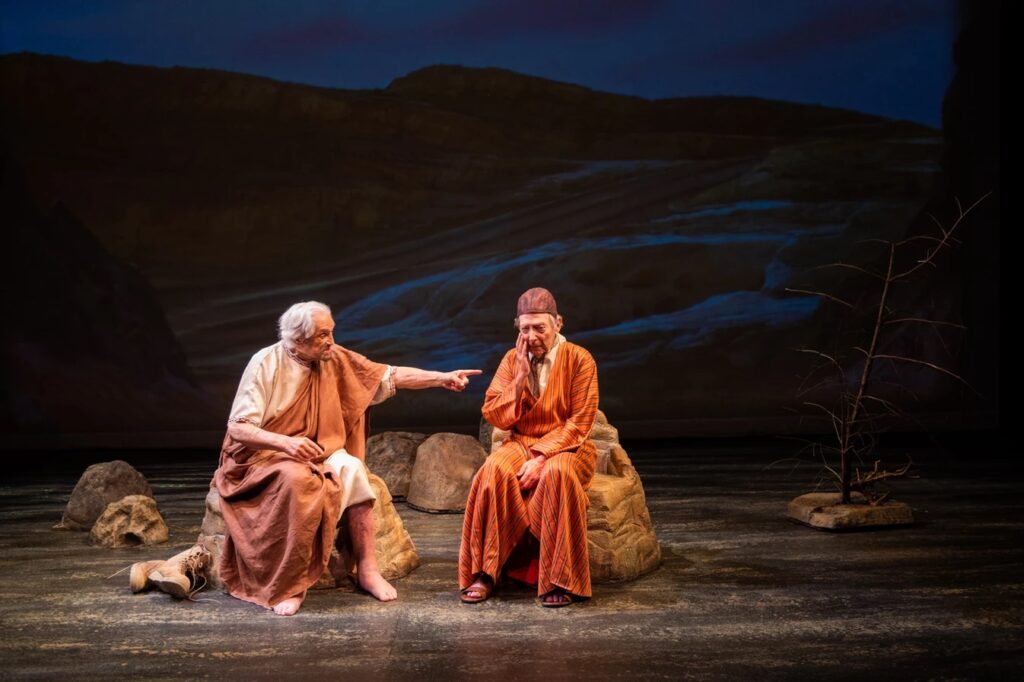

As the piece draws to a close, however, it takes an unexpected turn toward schmaltz when the gents, having shared enough of their emotional baggage to suggest the birth of a new friendship, Marty convinces the reluctant Phil to say the Jewish prayer for the dead (the Kaddish) over the graves of their departed. The shift from standard-issue Jewish bantering to religious solemnity is jarring, and the comic tone is gone for good.
Mr. Kopell, best known for his extensive career on TV, especially for his role on “The Love Boat,” is just shy of the nonagenarian milestone. Mr. Linden, who recently passed that marker, also has a rich TV heritage (Barney Miller was his heyday), but is equally endowed with theatrical experience, having debuted on Broadway in 1957’s Bells Are Ringing. There were only a few minor stumbles at the Friday night preview I saw, and fans of these veterans will not only be happy to discover they’re still active, keinahora, but enjoy seeing them even if they remain vastly superior to their hackneyed material. Think of the play as “Two Old Jewish Actors, Still Talking,” and take comfort that it’s only an hour long. Leave the kvetching to me.
Two Jews, Talking. Through October 23 at the Theatre at St. Clements (423 West 46th Street, between Eighth and Ninth Avenues). www.twojewstalking.com
Photos: Russ Rowland


